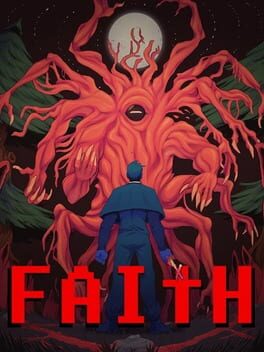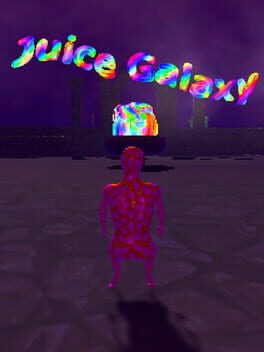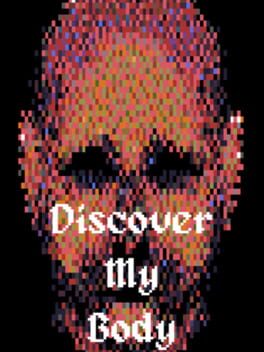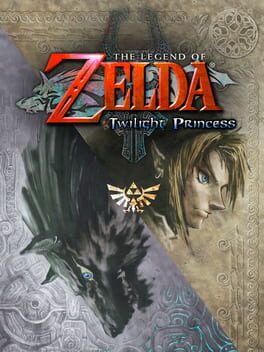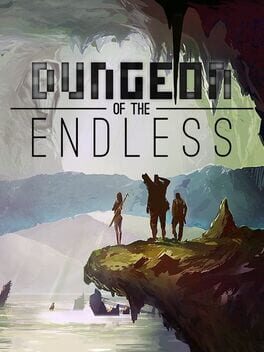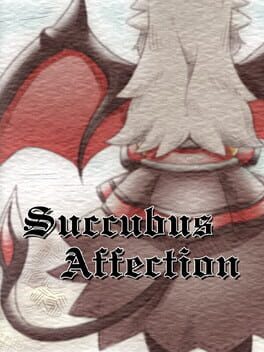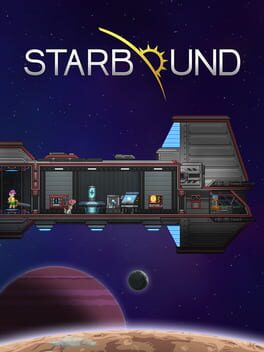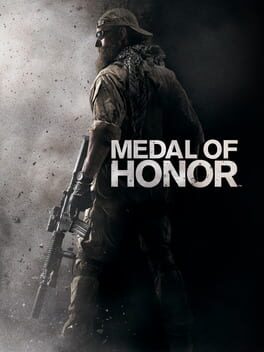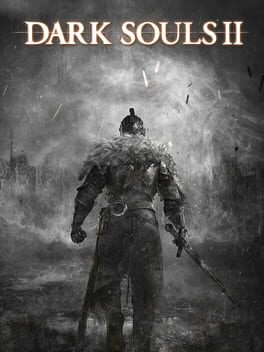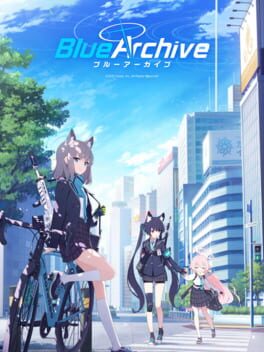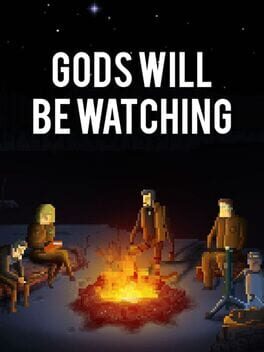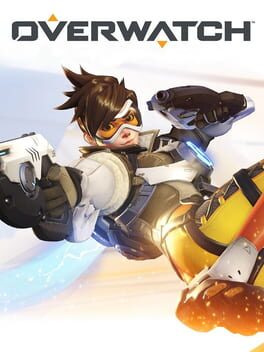This review contains spoilers
The game's first use of rotoscope during Amy's appearance made for a genuinely good scare, completely upending the player's initial assumption of an accurately simulated, low-fidelity Atari aesthetic. I really liked this moment as well as the further uses of the pixel rotoscoping technique afterwards as a way to up the suspense and keep the player guessing as to what else this game could do to surprise them with the retro graphics. I guess the developer liked these moments too because he added more in later versions of the game, like when you encounter Michael before going into the house in the first place. Personally, I think this takes away from the original reveal with Amy, and as cool as the fluid animations are I do believe that there can be too much of a good thing.
I really do like the quaint restraint of this first game compared to the more showy plot entanglings of the subsequent chapter. There's more of a commitment to the MS-DOS/Atari aesthetic, at least for the first half of the game. And the text to speech robotic voices are distinct, striking, and easily differentiated between characters, without being relied on too much. The plot is also easier to understand while still being delightfully open to interpretation. Chapter II does pull some neat tricks and go in some interesting directions but this first chapter still feels to me like a more complete standalone experience.
I really do like the quaint restraint of this first game compared to the more showy plot entanglings of the subsequent chapter. There's more of a commitment to the MS-DOS/Atari aesthetic, at least for the first half of the game. And the text to speech robotic voices are distinct, striking, and easily differentiated between characters, without being relied on too much. The plot is also easier to understand while still being delightfully open to interpretation. Chapter II does pull some neat tricks and go in some interesting directions but this first chapter still feels to me like a more complete standalone experience.
2020
Admittedly not much of a "game" yet, but still an incredibly original fever dream brimming with cool ideas and psychedelic, yet weirdly chill vibes. The whole world (er, galaxy) feels like splatterings of vividly colored blobs finger-painted by an ecstatic child lovingly brought to life by an older sibling game designer. The absurdist dialogue is hilariously matter-of-fact and what scant "plotlines" currently exist feel like the recordings of imaginary adventures collectively brainstormed between excitable kids on a playground. Even the combat system of manually flailing around your weapon with the mouse brilliantly invokes a kind of viscerally simplistic, childlike joy that only a game that isn't afraid to be dumb could afford to implement.
There's no music in the overworld, but when you've upgraded your character enough to properly fly, they sort of hum this calm little tune as they do so. Combining this with the surrounding scenery of mostly empty grayish rolling hills and foggy indigo skies gave me a sort of unexpected serenity akin to viewing an impressionist painting. The whole game even, seems to want to evoke some kind of impressionist feeling, but it's also not afraid to punctuate the viewings with dumb humor and pop references. The idiocy of the game's humor and its exploding creativity somehow kind of end up working pretty well together, though. I'll admit, aside from these personal takeaways, I don't really know what the "point" of the game is so far, but it's a definitely a vibe.
There's no music in the overworld, but when you've upgraded your character enough to properly fly, they sort of hum this calm little tune as they do so. Combining this with the surrounding scenery of mostly empty grayish rolling hills and foggy indigo skies gave me a sort of unexpected serenity akin to viewing an impressionist painting. The whole game even, seems to want to evoke some kind of impressionist feeling, but it's also not afraid to punctuate the viewings with dumb humor and pop references. The idiocy of the game's humor and its exploding creativity somehow kind of end up working pretty well together, though. I'll admit, aside from these personal takeaways, I don't really know what the "point" of the game is so far, but it's a definitely a vibe.
2020
The mixing of horror and comedy can be a tricky balancing act. Too much comedy and the horror elements can turn kitschy and ridiculous. Too much horror and the comedy turns into a lame distraction. Discover My Body, thanks to its punchy, ingenious writing, sufficiently manages both without taking too much of your time.
The term Kafkaesque is often used to describe works focusing on transformative body horror but it's rarer to see Metamorphosis-inspired fiction that seems to understand the famous author's wit and tries a similar kind of comedy. The game manages to be funny and horrifying! Yames' excellent brand of dark humor has been even more developed in his latest game Growing My Grandpa!, a game that further explores these themes of body transformation and human connection. And while this particular game is but a simple, five minute exploration of the idea, it can still serve as an excellent introduction to the developer's uniquely surreal aesthetic and pungent writing that is wonderfully expanded upon in their later projects.
The term Kafkaesque is often used to describe works focusing on transformative body horror but it's rarer to see Metamorphosis-inspired fiction that seems to understand the famous author's wit and tries a similar kind of comedy. The game manages to be funny and horrifying! Yames' excellent brand of dark humor has been even more developed in his latest game Growing My Grandpa!, a game that further explores these themes of body transformation and human connection. And while this particular game is but a simple, five minute exploration of the idea, it can still serve as an excellent introduction to the developer's uniquely surreal aesthetic and pungent writing that is wonderfully expanded upon in their later projects.
Amplitude Studios' Endless series of 4X games, to me, have always been characterized by visually striking, high concept civilizations and incredibly evocative lore writing. Big picture world building has always been the series' strength, but I've always found the smaller details and character writing to be just a bit lacking. This is, of course, completely fine in a 4X game, where you're managing entire armies and building massive superstructures. But in a more intimate setting like a dungeon crawler, where individuals are the focus, I couldn't help but want a bit more out of the heroes' colorful personalities. While the between-level elevator conversations are fantastic and give a tiny glimpse into who these people actually are, the more interesting ones are unfortunately relatively sparse as unique dialogues aren't even guaranteed to happen unless you happen to have a specific combination of characters. Even then there's only so many elevator rides before a run's over.
I understand if the focus is on the gameplay, but to be honest, while the series' games do fulfill a niche of providing fun, unique spins on 4X archetypes, they never quite reach the same level of depth and replayability that classics in the genre, such as the Civilization games, are known for. I find the same problem to be true for this particular foray into the tower defense/dungeon crawler genres. And while there's definitely a lot of polish and some pretty interesting interpretations of the mainline games' 4X mechanics, for some reason I just never found Dungeon of the Endless to be as addictive as the many other roguelike dungeon crawlers on the market. A lot of cool ideas here though, so hopefully they'll improve upon them in Endless Dungeon, the slightly confusingly-named spiritual sequel.
I understand if the focus is on the gameplay, but to be honest, while the series' games do fulfill a niche of providing fun, unique spins on 4X archetypes, they never quite reach the same level of depth and replayability that classics in the genre, such as the Civilization games, are known for. I find the same problem to be true for this particular foray into the tower defense/dungeon crawler genres. And while there's definitely a lot of polish and some pretty interesting interpretations of the mainline games' 4X mechanics, for some reason I just never found Dungeon of the Endless to be as addictive as the many other roguelike dungeon crawlers on the market. A lot of cool ideas here though, so hopefully they'll improve upon them in Endless Dungeon, the slightly confusingly-named spiritual sequel.
2020
An action porn game that primarily appeals to the monster girl and "older girl, younger boy" (おねショタ) fetishes. A lot of other eroge in the action-platformer genre can get a bit too extreme or violent for my taste, so I really liked that this game never really goes that much further than soft femdom and stays true to its cute, gentle art style. The pixel animations are smooth and well-made, though I wish the characters were just a little bit more detailed as the relatively large pixels can sometimes make it hard to tell exactly what they're doing, even if you zoom in.
The gameplay itself is legitimately fun and the combat actually feels good to play, which is honestly kind of rare for action eroge. The main mechanic of taking unique abilities from all the various types of monster girls means you end up with a pretty long list of moves you can mix and match together in creative ways. I never really found the progression to be that difficult or grindy, either, which made for an overall pleasant experience.
If there's one complaint I could make it's that while the game has a gallery for its CG scenes, it does not provide a proper one for its pixel animations. This is a little strange, as I feel like that's kind of the main appeal here. It does, at the end, give you the ability to spawn characters at will, so I guess the idea is that you make your own gallery wherever you want? It's a little annoying to use though, and I honestly would have just preferred a traditional gallery mode, but that's just me.
The gameplay itself is legitimately fun and the combat actually feels good to play, which is honestly kind of rare for action eroge. The main mechanic of taking unique abilities from all the various types of monster girls means you end up with a pretty long list of moves you can mix and match together in creative ways. I never really found the progression to be that difficult or grindy, either, which made for an overall pleasant experience.
If there's one complaint I could make it's that while the game has a gallery for its CG scenes, it does not provide a proper one for its pixel animations. This is a little strange, as I feel like that's kind of the main appeal here. It does, at the end, give you the ability to spawn characters at will, so I guess the idea is that you make your own gallery wherever you want? It's a little annoying to use though, and I honestly would have just preferred a traditional gallery mode, but that's just me.
2016
2010
2014
2021
A Libertarian's dream come true. Underage girls falling in love with adult men, a gun for every child, and crippling debt imposed by unfeeling megacorporations. All adding up to a pretty mediocre gacha money hole with a fairly polished presentation.
This is probably the most sus I've ever felt while playing a video game. The sheer amount of grooming that happens in the character stories is unhinged. I truly cannot imagine a sane adult playing through this game without ever feeling skeeved out at some point. This is truly video games' The Police's "Don't Stand So Close To Me." The very definition of a red-flag game.
Music's pretty good, though.
This is probably the most sus I've ever felt while playing a video game. The sheer amount of grooming that happens in the character stories is unhinged. I truly cannot imagine a sane adult playing through this game without ever feeling skeeved out at some point. This is truly video games' The Police's "Don't Stand So Close To Me." The very definition of a red-flag game.
Music's pretty good, though.
I still think this game has one of the best executions of the "survival game where you have to make tough moral decisions" idea. As niche and frustrating as the mechanics are, the overwhelming feeling of stress and oppression they force unto the player meshes perfectly with the overarching narrative themes of determination in the face of hopelessness and survival at all costs. The strict but carefully tuned difficulty turns every decision into a contemplative weighing between morals and practicality. Its unrelenting harshness and trial-and-error nature culminates into a brilliant narrative trick at the end that screams ludonarrative in a way that's frankly ahead of its time.
While the highlight of the game is definitely chapter 4, the climactic title drop scene straight from its original Ludum Dare prototype, I found its other sci-fi thriller scenarios equally as interesting, except for that damn desert stage. Honestly while the desert stage had some cool ideas, the sheer amount of rng BS it also had made it probably the most unfun experience I've had in a game in a while.
The game's definitely not for everyone. I feel that many will go into it expecting a story-focused point-and-click adventure and be left disappointed by the reality of it being essentially a meter-management simulator. However, for those who can endure its initial difficulty curve and end up inexplicably Stockholm Syndrome-d into finding its mechanics enjoyable, there's actually a pretty compelling narrative to be found here.
While the highlight of the game is definitely chapter 4, the climactic title drop scene straight from its original Ludum Dare prototype, I found its other sci-fi thriller scenarios equally as interesting, except for that damn desert stage. Honestly while the desert stage had some cool ideas, the sheer amount of rng BS it also had made it probably the most unfun experience I've had in a game in a while.
The game's definitely not for everyone. I feel that many will go into it expecting a story-focused point-and-click adventure and be left disappointed by the reality of it being essentially a meter-management simulator. However, for those who can endure its initial difficulty curve and end up inexplicably Stockholm Syndrome-d into finding its mechanics enjoyable, there's actually a pretty compelling narrative to be found here.
2016
2012
warning: political rant
This game is often criticized for its sorta hackneyed delivery of the "war is bad" theme and for making the player feel bad about actions they have no control over. But honestly, if you ask me, an American military shooter game that literally yells at and antagonizes its own player for liking American military shooter games is pretty cool and based, actually.
Like, I don't know man. I remember being a teenage gamer in America in 2012. I remember playing Call of Duty. I remember Call of Duty being "that game that all the boys play when they get together." I remember how, when the media talked about video game violence, they were pretty much specifically talking about Call of Duty (or sometimes GTA or Mortal Kombat or something). Regardless, American war shooters were all the rage and you couldn't escape talking about them, whether in praise or derision, whenever any topic concerning video games would come up.
One thing I don't remember hearing that much about though, and maybe this is just my experience, is how weird it was that all these shooting games were very obviously military fucking propaganda. Support for the military industrial complex is so incredibly ingrained within American society that the media will literally talk about how dangerous video game violence is to the youth without ever even entertaining the notion about how that violence glorifies modern imperialism or how it contributes to manufacturing the perceived necessity of foreign invasions. Game critique was so criminally underdeveloped that the only retort that gamers could come up with to "Do video games cause violence?" was "Actually, video games don't cause violence." Any further nuance about how this very specific glorification of military violence could, in fact, serve the interests of the state via its utility as recruiting material for impressionable young boys, needless to say, did not quite make it into the critical minds of teenage gamer bros at the time. So honestly, when Spec Ops: The Line came out and took an admittedly blunt hammer at issues like war hero worship and needless military intervention that even now, as a nation, we're still really bad at talking about, I actually found it refreshing.
I could ramble about politics for hours, and I haven't even really talked about the game at all...but honestly, so much has already been written about this game that I would literally just be making the same points other people have already made, but worse. Ultimately, the point is that Spec Ops: The Line hates you for liking Call of Duty and that's kind of awesome, in my opinion.
This game is often criticized for its sorta hackneyed delivery of the "war is bad" theme and for making the player feel bad about actions they have no control over. But honestly, if you ask me, an American military shooter game that literally yells at and antagonizes its own player for liking American military shooter games is pretty cool and based, actually.
Like, I don't know man. I remember being a teenage gamer in America in 2012. I remember playing Call of Duty. I remember Call of Duty being "that game that all the boys play when they get together." I remember how, when the media talked about video game violence, they were pretty much specifically talking about Call of Duty (or sometimes GTA or Mortal Kombat or something). Regardless, American war shooters were all the rage and you couldn't escape talking about them, whether in praise or derision, whenever any topic concerning video games would come up.
One thing I don't remember hearing that much about though, and maybe this is just my experience, is how weird it was that all these shooting games were very obviously military fucking propaganda. Support for the military industrial complex is so incredibly ingrained within American society that the media will literally talk about how dangerous video game violence is to the youth without ever even entertaining the notion about how that violence glorifies modern imperialism or how it contributes to manufacturing the perceived necessity of foreign invasions. Game critique was so criminally underdeveloped that the only retort that gamers could come up with to "Do video games cause violence?" was "Actually, video games don't cause violence." Any further nuance about how this very specific glorification of military violence could, in fact, serve the interests of the state via its utility as recruiting material for impressionable young boys, needless to say, did not quite make it into the critical minds of teenage gamer bros at the time. So honestly, when Spec Ops: The Line came out and took an admittedly blunt hammer at issues like war hero worship and needless military intervention that even now, as a nation, we're still really bad at talking about, I actually found it refreshing.
I could ramble about politics for hours, and I haven't even really talked about the game at all...but honestly, so much has already been written about this game that I would literally just be making the same points other people have already made, but worse. Ultimately, the point is that Spec Ops: The Line hates you for liking Call of Duty and that's kind of awesome, in my opinion.
